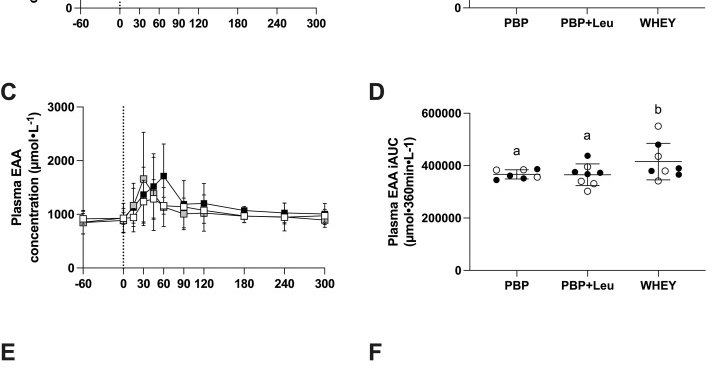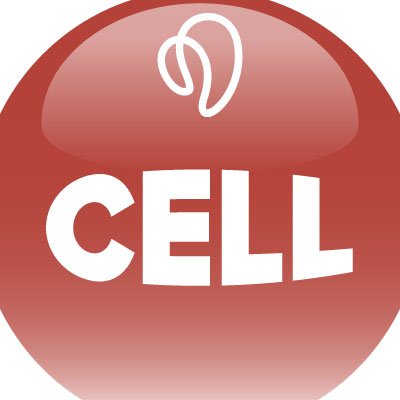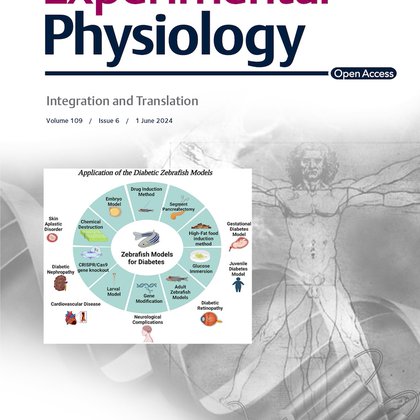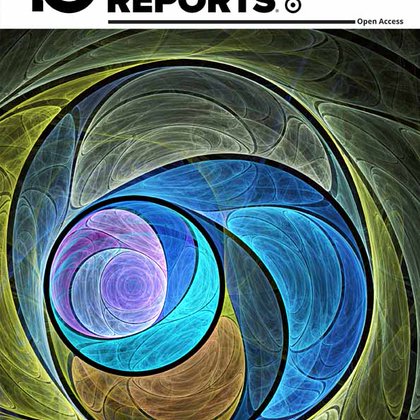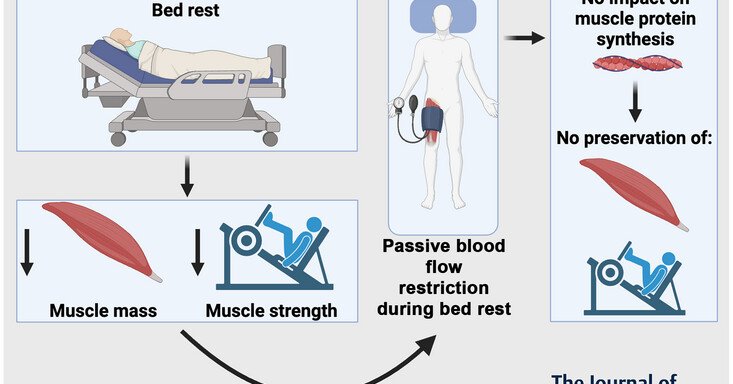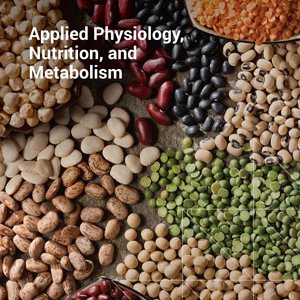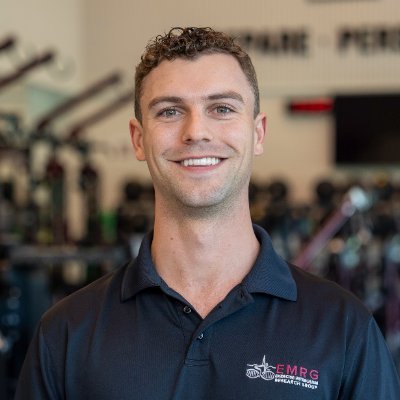
Brad Currier
@brad_currier
Followers
463
Following
705
Media
62
Statuses
563
PhD | Muscle Physiology & Nutrition | @McMasterU and @LindenwoodU 🏌🏼♂️ alumni
Joined September 2011
Really proud of this one. "Resistance training prescription for muscle strength and hypertrophy in healthy adults: a systematic review and Bayesian network meta-analysis" Our team's work now online @BJSM_BMJ
https://t.co/6a8s5EUkMh
bjsm.bmj.com
Objective To determine how distinct combinations of resistance training prescription (RTx) variables (load, sets and frequency) affect muscle strength and hypertrophy. Data sources MEDLINE, Embase,...
4
20
66
PhD complete! Tremendously thankful for many but especially @mackinprof - he's simply the best! https://t.co/6gGiiTair5
4
1
59
The Anabolic Response to a Ground Beef Patty and Soy-Based Meat Alternative: A Randomized Controlled Trial 👏 @DrMyohead @hirschkt @SKviatkovsky @JosephMatthews_ @ArnyPhD Gohar Azhar, Robert Wolfe https://t.co/nlStehwFy8
1
4
12
Stable Isotope Mass Spectrometry in Health and Disease: Applications, Methodologies and Analyses Registration closes August 18 for this great opportunity to learn from Drs. Dan Wilkinson, Matt Brook, Kenny Smith, Rovshan Sadygov, and Stephen Previs https://t.co/sj7FTvu67o
0
0
1
There aren't many pediatric exercise articles that are actually written for pediatric populations. That's why we wrote our newest article in @FrontYoungMinds : "Get Lifting - Strength Training for Children" https://t.co/LgroUfo0Ko
kids.frontiersin.org
Strength training programs for children have become very popular. But is strength training safe and helpful in making children stronger and healthier? In this article, we discuss why and how this...
1
6
30
The Muscle, Aging, (In)activity, and Nutrition (MAIN) Lab at @UBC - take note and spread the word, everyone! 👏👏 @james_mckendry
Following five wonderful years as a postdoctoral research fellow at @McMasterU under the expert guidance of @mackinprof , as of 1st July 2024, I’m very excited to share that I’m starting a new position as an Assistant Professor in Nutrition and Healthy Aging in @ubcLFS at @UBC
0
0
8
Registration deadline EXTENDED to June 10 for the 2024 Ontario Exercise Physiology Conference. Sign up now to join an outstanding community of exercise physiologists! https://t.co/AjpmXIHZgF
0
1
3
Abstracts are due tomorrow (May 24) for Ontario Exercise Physiology (OEP) 2024! OEP 2024 will be hosted at McMaster University on June 24-26th and is co-organized by @BrockUniversity and @McMasterU See more info and submit/register here: https://t.co/w99Sz8xxx7
1
9
16
Come attend the 2024 Ontario Exercise Physiology co-organized by @BrockUniversity and @McMasterU, and hosted at McMaster University on June 24-26th. ▫️Abstracts due May 24 ▫️Register by June 3 See more info and register here:
2
17
36
Muscle protein synthesis in response to plant-based protein isolates with and without added leucine versus whey protein in young men and women Great work from our team @ChanghyunLim1 @james_mckendry @sidasawan @mackinprof
https://t.co/GOVZiStlay
cdn.nutrition.org
Plant-based protein supplements often contain lower amounts of leucine and other essential amino acids (EAAs), potentially making them less effective in stimulating muscle protein synthesis (MPS)...
1
8
37
Exploratory physiological experiments are not clinical trials https://t.co/JoyGOpz4Uw Worthwhile perspective to read and consider for #Nutrition #Exercise researchers, via @proferikrichter @davidjamesoz @DrJohnKirwan @JuleenRZierath in @CellPressNews
0
0
2
Honoured to work with and learn from this dream team. Thank you for the recognition @AJPCellPhys
Huge congratulations to Dr. Everson Nunes for winning the prestigious AJP-Cell Physiology Best Review Paper award at #APS2024! Well-deserved recognition! 🎉🏆 @McMasterU @nunesea @tjstokes5 @james_mckendry @brad_currier @mackinprof
1
0
16
Frequency isn’t the main driver of exercise adaptations. But that doesn’t mean it’s not important. Here’s 3 reasons why the “how often” part of the exercise equation matters:
1
5
27
SRMA: No effect of protein/AA provision in preventing disuse-induced muscle atrophy; need more high-quality trials 👏 Hughes, Francis, Rooney @R_D_Pollock @OllyWitard
https://t.co/yHcBndI26k
physoc.onlinelibrary.wiley.com
Bed rest and limb immobilization are models of muscle disuse associated with skeletal muscle atrophy and reduced strength. The purpose of this systematic review was to examine the impact of protein...
0
0
0
Anti-inflammatory medication (NSAID) does not alter reduction in fasted and fed rates of myofibrillar protein synthesis following 2-week single-leg immobilization Dideriksen, Reitelseder, Boesen, Zillmer, @JakobAgergaard Kjaer, Holm @ThePhySoc
https://t.co/pYUa65VKIR
physoc.onlinelibrary.wiley.com
Muscle inactivity may reduce basal and postprandial muscle protein synthesis (MPS) rates in humans. Anti-inflammatory treatment alleviates the MPS impairments in younger individuals. The present...
0
0
3
Blood flow restriction during bed rest does not modulate daily muscle protein synthesis rates and does not preserve muscle mass or strength @Cas_Fuchs @wesleyhermans @JeanNyakayiru @michelleweijzen Tim Snijders, Lex Verdijk, Luc van Loon https://t.co/SVGyl2NetZ
physoc.onlinelibrary.wiley.com
Abstract figure legend Two weeks of bed rest lowers skeletal muscle mass and strength. Daily passive blood flow restriction during bed rest does not modulate daily muscle protein synthesis and does...
0
0
13
RT with a close proximity-to-failure can be sufficient to promote similar hypertrophy as reaching momentary muscular failure @MartinRefalo Eric Helms, Zac Robinson @dlhamilton82 @jacksonfyfe @Deakin_ExSc
https://t.co/FIrEme8932
0
3
9
"measures of muscle quality demonstrate divergent recovery rates following immobilization, with muscle mass lagging behind improvements in strength" @Ryan_Girts @kyliekharmon @Jpbeausejour_ @MattStockPhD et al. https://t.co/USCgVmeacb
cdnsciencepub.com
This manuscript represents the second phase of a clinical trial designed to examine the effects of knee joint immobilization and retraining on muscle strength and mass. In Phase 2, we examined sex...
0
0
2
a few thoughts @drdairy50 This is a good study showing that in young adults (32 yr old), meal distribution is less important than total daily protein intake (90g/d). Meal distribution has ONLY been shown to be important in adults >50 yrs. Other points below:
RCT: 16 weeks of even protein distribution (30g 🥛/meal 3 times/day) vs. skewed distribution with protein at the evening (10/15/65g 🥛/meal) has no effect on body composition:
5
18
94
RT on outdoor exercise structure (pictured) improves strength and physical function in older adults @Bri_Leadbetter @DrMSenechal Ken Seaman, Danielle Bouchard @UNB Many potential benefits for people willing to use this exercise medium! https://t.co/FYYsZZF9Jf
1
1
4







